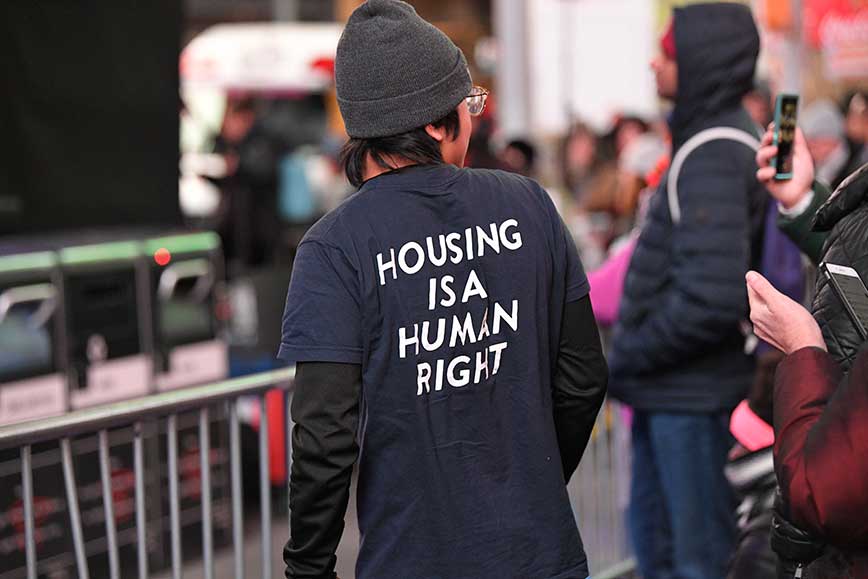Defending Access to Decent Housing
Lowenstein and The Legal Aid Society in New York City are co-counsel in a class action aimed at defending access to decent housing for recently homeless New Yorkers. The litigation centers on a dispute over New York City’s Special One-Time Assistance (SOTA) program, which assists individuals and families living in New York City shelters by providing one year’s rent for apartments in New York City or elsewhere. After the program began in 2017, many recipients used the assistance to relocate to Newark but subsequently encountered problems with uninspected and uninhabitable units, often without heat or working electricity or with leaks and water damage, collapsed ceilings and floors, or insect and rodent infestations.
In 2019, Newark responded to the SOTA program by amending its municipal code to require housing inspections and reporting by any agency or person providing rental subsidies to tenants in Newark. Unfortunately, the ordinance also prohibited any person from “knowingly bring[ing], or caus[ing] to be brought, a needy person to the City of Newark for the purpose of making him or her a public charge.” It further restricted the ability of third parties providing rental subsidies to prepay rent on behalf of SOTA recipients.
In November 2020, Lowenstein and The Legal Aid Society entered the case on behalf of tenants then residing in New York City shelters who were eligible for SOTA and wanted to move to Newark. While welcoming the inspection requirements Newark had imposed, the tenants objected to the provisions of the ordinance that aimed to restrict their subsidies and exclude them from the city.
In March 2021, Newark filed a motion to dismiss, arguing that the tenants had failed to assert a sound legal claim. The firm and Legal Aid defended, and in October 2021, the federal district court upheld our clients’ claims. First, the district court concluded that the tenants’ complaint adequately alleged that Newark’s ban on prepaid rental subsidies violated New Jersey’s Law Against Discrimination, which protects tenants from discrimination based on their use of lawful subsidies to pay their rent. Second, the district court held that the tenants stated a claim that Newark’s ban on bringing needy people into the city violates the United States Constitution. The Constitution prevents states from interfering with the right of the people to travel and move from one state to another. The district court thus concluded that our clients could pursue their challenge to Newark’s attempt to close its borders to low-income residents.
The district court held that the tenants stated a claim that Newark’s ban on bringing needy people into the city violates the United States Constitution.

